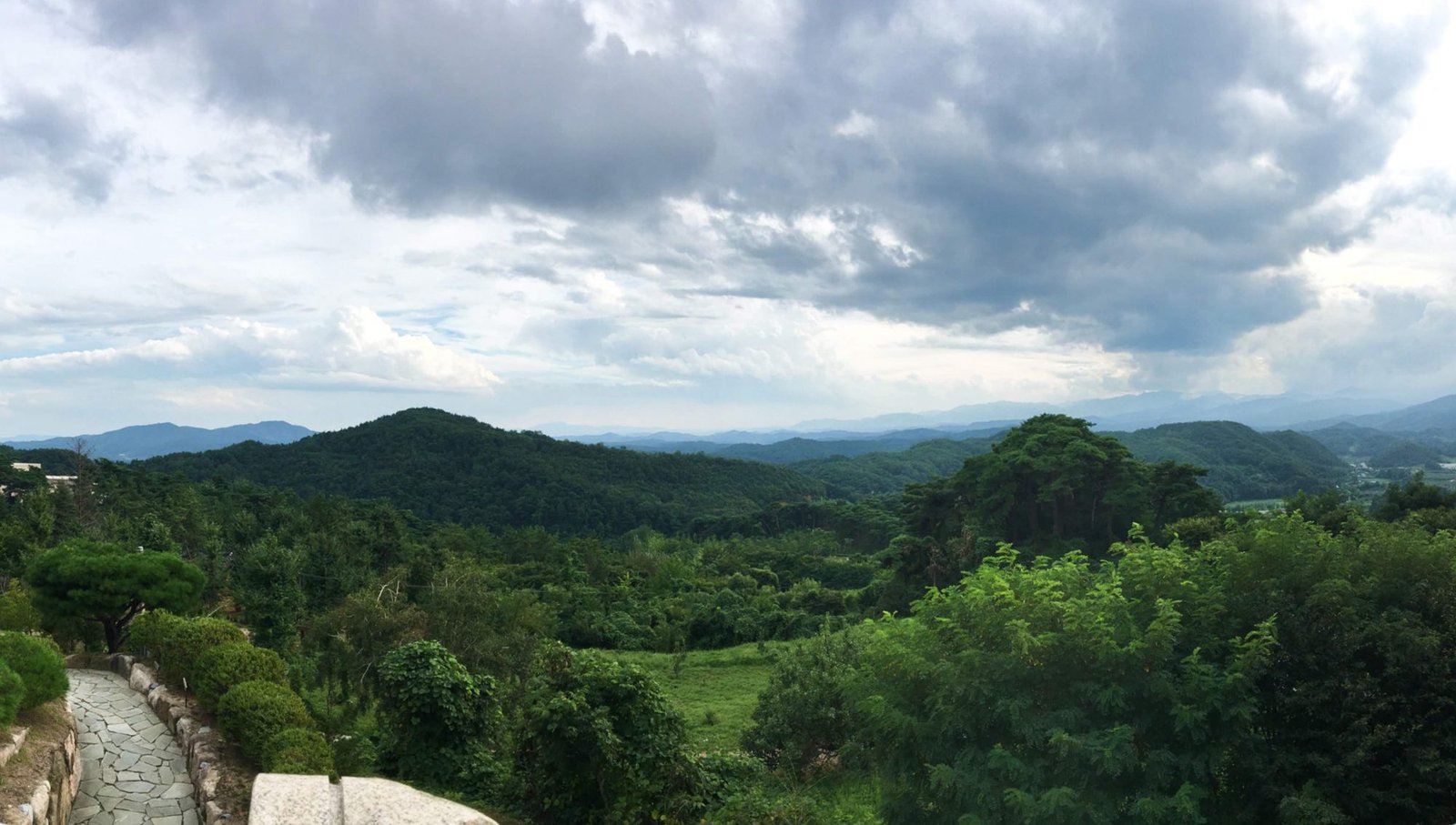On Thursday evening my Contemporary Social Ethics professor, Dr. Jae Park, treated several of her students to dinner.
We met at a restaurant called Sictac in downtown Seoul where we enjoyed a Korean spin on fine Italian food. There were 15 of us for dinner: three from the United States, one from New Zealand, one from Canada, one from Turkmenistan, two from Mexico, one from The Netherlands, one from Finland, one from Australia, and four from South Korea. We spent the evening sharing experiences from home, perspectives on ethical and social issues, and plans for the future. Dr. Park told us about her time at the University of Chicago and Harvard’s divinity and business schools, working as an investment banker on Wall Street, and how she became a theology professor at Yonsei University. She had great anecdotes and advice to share with all of us, and we stayed at the restaurant until we were kicked out at 2200 so it could close.
The Korean dining experience is almost always family style. Much like meals at USNA, dishes are served to the table and passed around for everyone to take their share. The socialization of dining makes meals with a group even more of an event than they are when everyone orders an individual meal. Nobody begins eating until all have been served and the oldest person at the table lifts their fork (or chopsticks). It is considered taboo to pour your own drink (even water) at the table. I have gone many meals parched and waiting for someone to offer me more water, but keeping this in mind, have always made the conscious effort to offer it to others. Moreover, it is disrespectful to use only one hand when pouring someone’s drink or passing an item along. In such cases, it is customary to support one arm with the other (in the case of pouring) or use both hands to pass an item. At first, these practices made me slightly anxious and uncomfortable around meals. Now, however, it has simply become second nature and I have grown to enjoy the added layer of intimacy and shared experience surrounding dining out in a group setting. I will absolutely miss it.
When I came to South Korea, I certainly expected to interact with Koreans and other American exchange students, but for some reason did not anticipate meeting so many other people from all over the world. It has been such an incredible privilege to develop relationships with people from countries that I have never been to, broadening my worldview and perspectives on the simple elements of daily life.
Meryem (not her real name), the woman from Turkmenistan, told us about her life growing up in the once Soviet-controlled country now under Communist rule. As an outsider (and especially an American outsider), we would view freedoms in Turkmenistan as largely repressed: there are severe restrictions on speech and religion and government-sponsored discrimination against ethnic and religious minorities. Up until this point, I had been completely unaware of her background. Whenever we had class discussions, I was often taken aback and confounded—even frustrated—by some of her perspectives and opinions. Hearing about her life growing up and how she made it to Korea, however, provided me with a level of understanding that has made me more tolerant of such perspectives. Though I still vehemently disagree with many of her views, I feel as though I have developed a higher degree of patience for views which differ from my own as well as a greater appreciation for my own background and upbringing. This was not an isolated experience this semester, but is actually representative of a series of such experiences which have had a similar effect on me. When she sat across the table from me at dinner on Thursday evening I had initially been somewhat irritated as I recalled her participation in class discussions but, by the end of the night, was grateful to have become acquainted.
The evening of good food and great company was an excellent way to conclude my favorite class this semester. Professor Park has been a great mentor to me over the past several weeks, and we have met for coffee outside of class to discuss life and career prospects on a few occasions throughout the semester. I was grateful to do the same in a group setting with other students who have similar ambitions but differing perspectives.
Through all of my experiences, I have developed skills and acquired new outlooks that will serve me well in the remainder of my career as a Midshipman and officer. Studying abroad in a foreign country and interacting with not only those local to Korea, but also the many other international students, has truly sharpened my understanding of diversity and culture, which will serve me well as I go on to operate in foreign countries, interact with local people, and collaborate with foreign militaries. I have learned how to better lead and manage myself by attaining a new level of competence in being independent and far from the conveniences of home. Above all, I have made great friendships and honed my situational awareness by learning to constantly check my assumptions and biases in order to better understand my environment.
